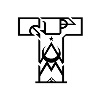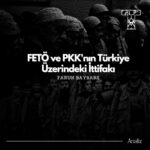İbrahim Akbaş
Araştırmacı
Since the foundation of the Republic, Turkiye has implemented policies close to Western states and has been one of the leading states in the establishment of many Western-based international organisations, especially NATO, and has considered it important for Turkiye to be a part of such organisations. The relations that Turkish Foreign Policy has maintained on this axis until today have started to change visibly, especially after the developments that started in Tunisia in 2011 and spread rapidly and then called the Arab Spring. This situation, which is interpreted as “axis shift” according to some and “break with the West” according to others, is interpreted as a situation that emerged because of the US and Western states, which are expressed as allies and strategic partners for Turkiye, not understanding or ignoring the basic concerns of Turkiye, especially security. At this point, it would not be wrong to interpret the Turkish foreign policy of the 2011-2023 period as a period dominated by the attitude of strategic autonomy, because Turkiye has shown in many examples that it will take unilateral action and follow its own policies, if necessary. In this article, the aforementioned strategic autonomy stance of turkey is discussed with concrete examples in the light of the developments in the axis of TR-EU relations, NATO, USA, Syria,Russia, Eastern Mediterranean, Middleast and Turkic Republics.
The first contacts with the EU started in 1959 and have followed a process of ups and downs.Turkiye, which attaches importance to being a part of western-centred formations, has continued its relations with the EU with this understanding. Although the relations, which followed a downward momentum after 2005, witnessed small positive stirrings between 2013-2016, no serious results emerged. In 2016, after the coup attempt in Turkiye, relations came to a breaking point. The coup attempt was a breaking point in Ankara’s ability to fulfil the EU’s political reforms.One of the best examples of Turkiye’s strategic autonomy attitude in its relations with the EU can be seen in the events that followed Russia’s attack on Ukraine on 24 February 2022. Russia’s attack on Ukraine caused the reaction of the world public opinion and Turkiye voted in favour of the resolution condemning Russia’s attitude in the United Nations General Assembly. In this direction, the West started to impose sanctions against Russia and prevented Russian oligarchs from entering their countries. Although the West asked Turkiye to apply these sanctions against Russia, Turkiye rejected this demand. This behaviour of Turkiye, which is a member of NATO, was again interpreted as a break with the West. However, Turkiye has a serious energy dependence on Russia and Turkiye could not jeopardise its energy security. In addition, Russia is an important state for the Turkish economy in terms of fruit imports and tourism revenues. Moreover, the high level of co-operation between Turkiye and Russia, especially in recent years, and the sincere relationship between Erdogan and Putin are some of the factors that prevented Turkiye from getting involved in these sanctions against Russia. In fact, this policy soon paved the way for Turkiye to become a mediator between the West and Russia and between Russia and Ukraine. It was able to bring the parties to the war together in Antalya and Istanbul to establish a peaceful atmosphere and to conclude a very important grain agreement. The fact that Russia and Ukraine are the world’s leading exporters of agriculture and fertilizers has shown that the war between these two states cannot be considered a regional war, but rather a crisis of global proportions in terms of its consequences and effects. The agreement, which allowed grain products, especially corn, wheat, barley, sunflower oil, and fertilizers to be inspected in Istanbul and offered to world markets, relatively eased concerns over food security. As we can see in this case, Turkiye has tended to pursue an independent foreign policy when its own interests are at stake, especially intensively in the post-2010 period.
The announcement by Turkiye, a NATO ally, that it would purchase the S-400 air defence system from Russia in 2016 has led to serious criticism from the US and other components of NATO. The basis of the criticism is the idea that the S-400 air defence system is incompatible with NATO’s existing defence system. This step by Turkiye, caused serious discomfort in Washington. With the first delivery in 2017, Turkiye became the first country to have this defence system despite being a NATO member. Perhaps the most important factor that pushed Turkiye to take this step is the fact that the US is dragging out the decision to share the Patriot defence system with Turkiye and that Turkiye’s demand for this system has not been met. As Emre Erşen states, since the end of the Cold War, Turkiye has wanted to diversify its resources in the field of defence and military equipment supply by not depending on a single country (also Harunoğlu and Sever, p.88). Although the US congress removed Turkiye from the F-35 programme and threatened new sanctions, Turkiye did not back down. Although this defence system purchased from Russia has not yet been activated, Turkiye’s resolute stance on this issue shows that if Turkiye is convinced that its security concerns are not understood by its allies, it will not hesitate to turn to alternative sources if necessary for its own security.
While relations with Syria before the Arab Spring were seen as the most productive example of the zero problem policy with neighbours, Turkish foreign policy faced serious challenges in the continuation of this process ( Öniş 2012,p.8). Turkiye’s attitude towards the Syrian regime changed drastically when Turkiye’s efforts to negotiate with the Assad regime during the Arab Spring events failed to yield results. It was not foreseen that Turkiye’s foreign policy towards the Assad regime would become a major problem in the coming years. For Turkiye, the idea that Assad’s regime would be overthrown in a short period of time was wrong. Turkiye had a serious disagreement with Russia on this issue. For Turkiye, Bashar al-Assad was a leader who had lost his legitimacy, but Russia was in favour of Assad remaining in office. Turkiye and Russia did not want to damage their economic relations for the sake of regional disputes. After some events that caused tension between the two sides in this period, we can see that efforts were made to prevent these developments from casting a shadow on economic relations except for the jet fighter crisis.As Emre Erşen points out, the downing of a Turkish reconnaissance plane by the Syrian regime in 2012 caused Turkiye to adopt a tougher military stance in the region. In 2015, Turkiye forced a passenger plane travelling from Moscow to Damascus to land in Ankara on the grounds that it was carrying military ammunition. Although Russia criticized this action for endangering the lives of the passengers, it did not cause any serious problems in the relations between the two countries. Another point of disagreement between Turkiye and Russia over the Assad regime is Turkiye’s desire to install the Patriot system on the Syrian border. Russia, which was in favour of the Assad regime, naturally criticized this situation. In Russian-Turkish relations, where the understanding of compartmentalization based on the principle that regional disputes should not disrupt existing relations, except for the downing of the Russian warplane by Turkiye, Turkiye has also been cautious against a regime that it does not trust and claims to have lost its legitimacy by prioritizing border security. As we can see from this example, Turkiye can also adopt a different attitude due to its strategic interests with Russia, with which it is strategically aligned at some points.
The energy resources first discovered in the Eastern Mediterranean in 2003 constitute the main reason for the disputes between the littoral countries. The ability of the countries to share the energy resources in this region in a fair manner depends on the maritime delimitation agreements to be made between these countries. Countries should finalize their continental shelves and exclusive economic zones within the framework of the agreements they will establish. However, the states bordering this region have different theses and claims at this point. For example, because of the theses of Turkiye and Greece, intersecting regions emerge. For Turkiye, Greece, Egypt, the Greek Cypriot Administration of Southern Cyprus and the Israeli front are taking steps that ignore Turkiye’s rights. Turkiye wants to defend its rights in this region and to carry out activities within the framework of the rights granted to it. It also expresses the rights of the Turkish Republic of Northern Cyprus. Turkiye, which has determined its maritime borders in the region only because of its agreement with Libya, has also announced the blue homeland doctrine. Despite all the criticisms, Turkiye wanted to show its determination by sending its drilling ships to this region. The fact that these drillships are accompanied by military ships and UCAVs sends an important message, expressing that Turkiye can also show its hard power capacity to protect its rights if necessary. The fact that the EU, as well as Egypt, Israel and Greece, calls Turkiye’s activities in this region illegal and is involved in this problem constitutes another source of problem between Turkiye and the EU. The EU wants the natural gas to reach them, thus reducing their dependence on Russian gas. For this reason, the EU states that they will impose sanctions on Turkiye if its current activities continue. Turkiye, as the country with the longest shores in the Mediterranean, is determined that it cannot be excluded from the process here. One of the solution proposals for the solution of this problem, as Grigoriadis states, is that the problem will be solved on the basis of international law and mutual benefit with Turkiye’s participation and approval of UNCLOS (p.29). However, the fact that Greece and Turkiye have different theses in other regions and areas and that Turkiye stands behind Turkiye’s theses at these points is the clearest indication that Greece will not be a party to this convention. For the solution of the crisis over these energy resources in the Eastern Mediterranean, as Arısan and Eralp state, the establishment of NATO-EU co-operation for the solution of the Cyprus Problem will be beneficial not only for the EU, Turkiye and Greece, but also for other components of the region, and the view that an environment of co-operation between Turkiye, Greece and Cyprus in the eastern Mediterranean will be formed (p. 5) seems more reasonable. As Koukoudakis states, energy agreements between Greece and Turkiye will also contribute to the energy security of Europe and may even pave the way to the EU for Turkiye (p. 160).
Turkiye’s foreign policy during the Arab Spring is seen as the cause of the new problems that emerged in the following period. In the face of domestic and foreign developments in the following years, Turkiye, as William Hale has quoted, gave up the idea that it could act as a mentor in the Middle East and abandoned this understanding. When we look at Turkiye’s policies towards the Middle East, we can see that they are generally formed on the axis of “terrorism” and “security”. The power vacuum that emerged after the Arab Spring led to the emergence of new terrorist organisations in the region, and terrorist groups such as the PKK, which were already in the region, expanded their areas of dominance. Turkiye is initially cooperated intensively with US against terrorist organisations but fell out with the US. This contradiction first emerged when the US supported the YPG/PYD formations against ISIS. After this decision, as Hale points out, Turkiye had to face the fact that its NATO ally was cooperating with formations that it considered terrorist (p.29). The fact that these formations operating in the Middle East engaged in terrorist activities inside Turkiye, such as in Suruç and Ankara, led Turkiye to adopt a tough stance towards this region. Turkiye was trying to manage the process at the table with regional and global powers while demonstrating its military capacity in the region. Unlike Turkiye, Russia and the US did not see formations such as the PYD/YPG as terrorist organisations. Moreover, the US was providing these formations with arms and logistical aid, while Russia was not hiding its official relations with these formations. Turkiye, on the other hand, not only fought against these formations, but also against the PKK and ISIS. It was continuing its intensive bombing activities against PKK camps in Iraq and Syria and against ISIS. Russia, which did not include the PKK in its terrorist list, criticized Turkiye’s bombing activities. Turkiye launched the “Euphrates Shield”, “Olive Branch” and “Peace Spring” operations to ensure its border security and to prevent a terror corridor in the Middle East. Turkiye’s Syria policy has led to a conflict of interest with Russia, while on the other hand, Turkiye’s fight against the PYD/YPG has created a conflict of interest with the US. It is not known where these conflicts of interest, which continue today, will evolve or whether a diplomatic solution will bring peace in the region. However, Turkiye has shown with its operations that it is determined to ensure border security. At this point, it should be emphasized that the resolution of the disputes between Turkey and the Assad regime could be an important milestone in terms of regional security. The recent contacts between the foreign ministers and the intelligence services, in particular, have conveyed some small positive messages between the parties. However, only time and the desire of the parties to solve the problems will tell to what extent the demands of the Assad regime and Turkey’s security policy can converge.
Turkiye was one of the first countries to recognize Azerbaijan, Armenia and Georgia, which were established after the collapse of the Soviet Union. Turkiye, which has always supported the independence of Azerbaijan, has very close historical and cultural ties with this country. For this reason, the slogan “One nation, two states” also reveals the extent of bilateral relations. Turkiye, which has always defended the territorial integrity of Georgia due to Russian influence, has very close relations with Georgia, especially in the field of economy. Relations with Armenia, on the other hand, are quite problematic. The most important underlying cause of this problem and the reason for Turkiye’s closure of the border gate is the Nagorno-Karabakh conflict between Armenia and Azerbaijan. Moreover, the so-called genocide allegations of the Armenian side are another factor affecting the deterioration of relations. In addition to these states, the establishment of the Turkic republics after the dissolution of the Soviet Union and Turkiye’s close relations with these states are important for Turkiye. Turkiye has increased its interest in the region after 1990, and as the Ak Parti’s strategic priority has shifted from these regions to the Middle East, these regions have become less important for Ankara. Since this region is home to vast oil and natural gas resources, this is also the reason for the conflicts. The involvement of Russia, the US and the EU in this problem has an impact on Turkiye’s policies. The fact that the gas extracted from Central Asia is transported to Europe through energy lines makes Turkiye a critical country. Since Russia has a serious pressure and influence on these countries that broke away from the Soviet Union, Turkiye is careful not to provoke Russia. After the 2015 jet crisis, it was once again seen that the tension between Turkiye and Russia puts Azerbaijan and Central Asian countries in a difficult position. In recent years, Turkiye has accelerated its steps towards the Organization of Turkic States. In this field, Turkiye continues to take measured steps in line with its own interests and maintains its strategic presence in the region.
The post-October 7 Israeli-Palestinian war, which has once again become a hot topic in international politics, has once again highlighted the importance of Turkey’s actions to ensure its security and protect its interests. This is because the international community and the organizations they comprise, notably the UN, are far from acting with the principle of permanent neutrality. The Russian-Ukrainian war and the Israeli-Palestinian war, which coincided more or less at the same time, are being evaluated from different perspectives by the international community. This calls into question the sincerity and credibility of this international community and organizations. In this equation, Turkey is taking various steps and developing policies to protect its interests. What should be questioned here is not the direction of Turkey’s axis, but the dynamics and structure of international politics that compel Turkey to take these steps. The post-2011 developments and moves have shown that Turkey has neither shifted its axis nor abandoned its relations with the West. Turkey’s aim in this complex equation is to protect its interests. In an equation where security concerns are ignored and disregarded, Turkey’s unilateral operations and initiatives are the result of the necessity of being a state.
Kaynakça
The Eastern Mediterranean as an Emerging Crisis Zone: Greece and Cyprus in a Volatile Regional Environment -Assoc. Prof. Dr. Ioannis N. GRIGORIADIS, Jean Monnet Chair, Department of Political Science and Public Administration, Bilkent University, Ankara; Senior Fellow and Head, Program on Turkey, Hellenic Foundation for European and Foreign Policy (ELIAMEP), Athens
Critical Juncture in Cyprus Negotiations-by Nilgün Arısan and Atila Eralp
IAI WORKING PAPERS 16 | 13 – MAY 2016 SSN 2280-4331 | ISBN 978-88-98650-93-4 © 2016 IAI
Nilgün Arısan and Atila Eralp, Critical Juncture in Cyprus Negotiations
George Koukoudakis, “The Role of Citizens in the Current Greek-Turkish Rapprochement,” Paper for the 56th Annual Conference of Political Studies Association, University of Reading (4-6 April 2006). This is the only available source regarding public opinion on Greek-Turkish rapprochement.
https://www.brookings.edu/wp-content/uploads/2016/06/Turkey-and-the-European-Union.pdf
https://www.insightturkey.com/commentaries/turkey-the-us-russia-and-the-syrian-civil-war (DOI: 10.25253/99.2019214.02). Page: 25-40.
Turkey’s domestic politics, public opinion and Middle East policy William Hale Received 29 Jun 2016 | Accepted 4 Oct 2016 | Published 29 Nov 2016 DOI: 10.1057/palcomms.2016.81
Turkey between the United States and Russia: Surfing on the Edge Nur Çetinoğlu Harunoğlu; Ayşegül Sever and Emre Erşen




